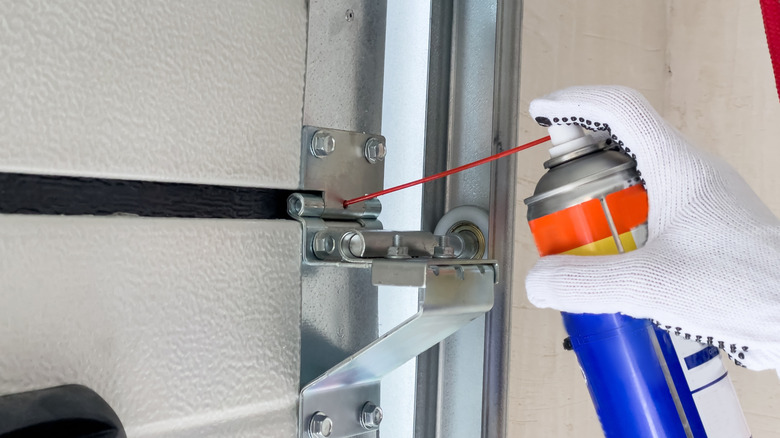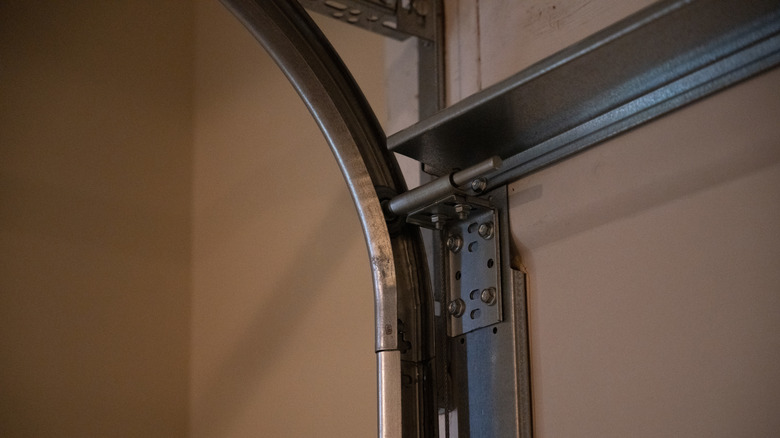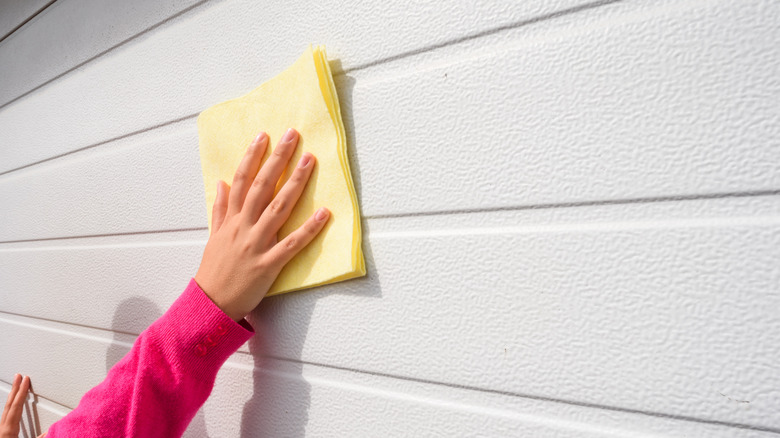Why You Should Reconsider Using Grease On Your Garage Door Tracks
If your garage door has been stiff and squeaky every time it opens and closes, this is not just unpleasant to the ears but could also indicate some overdue maintenance. You may be tempted to reach for your can of standard WD-40 or another oily solution to lubricate the garage door tracks and stop the squeaking, but this would actually do more harm than good. Lubricating your garage door is not altogether wrong, but the tracks in particular should not be greased, as this can compromise their functionality and even attract more dirt and grime over time, ultimately making the problem worse.
When greasing other parts of the garage door, you should still avoid using regular, multi-purpose WD-40. Once it dries, it can attract all sorts of unwanted dust, dirt, and bugs. That doesn't mean your trusty WD-40 has no use around the house; it's perfectly fine on standard hinges and knobs. For a quiet garage door, however, you may want to look for a dedicated alternative.
Don't grease your garage door tracks
Greasing a sticky garage door may seem intuitive, but the tracks are not meant to be slippery or lubricated at all. Greasing them actually attracts more dirt, exacerbating the mess. However, certain parts of the garage door can benefit from lubrication. You can lubricate the hinges, roller bearings, springs, and bearing plates, as long as you leave the tracks and the surface of any nylon rollers grease-free. The squeaky sound driving you up the wall may be coming from the rollers, so starting with those could potentially solve the issue. Always remember to turn off the power before starting any work on the garage door for your safety.
While it's tempting to use WD-40 around the house for your lubrication needs, it's not primarily a lubricant, but a degreaser, making it a poor option for your garage door in the long run. We recommend picking up products specifically designed to lubricate garage door parts. Many home improvement enthusiasts swear by silicone spray in particular, while others much prefer white lithium grease. Both are often recommended by professionals, so give them a try and see which one best fits your requirements.
What to do instead of greasing the garage door tracks
Instead of turning your garage door tracks all slippery and grimy with grease, give them a thorough cleaning to remove dust, dirt, and other buildup. You can use a soft brush to loosen and clear dust and debris, then go in with a wet cloth and mild cleaner to remove grime.
If there is a lot of debris stuck in the tracks, particularly larger particles and objects like leaves, you can grab a vacuum cleaner with a long head suitable for the width of the tracks. This can make the chore of removing these obstructions move along much more quickly than cleaning out the tracks by hand. If you're short on time, you can always call a professional service to clean your garage door and take care of all the lubrication — just make sure they know what they're doing and don't end up greasing the tracks themselves.


